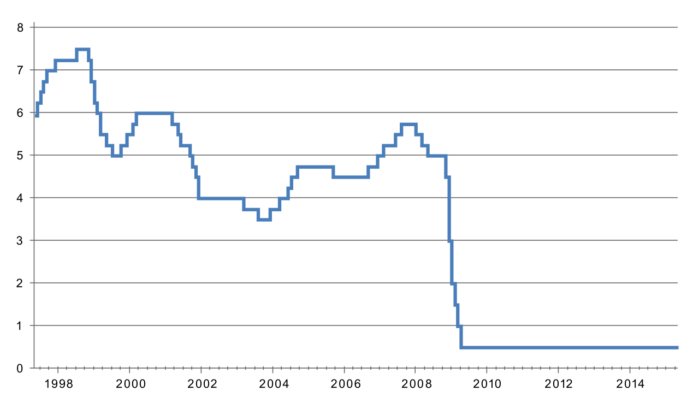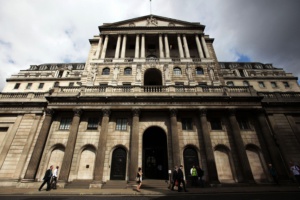With a decision on the timing of the “Brexit” vote looming, David Cameron is starting to ramp up the pro-EU rhetoric to convince the public to ignore the Eurosceptics and vote to maintain the status quo. The decision has very much been Cameron’s Sword of Damocles moment, hovering over his current tenure and threatening to create an unwanted Prime Ministerial legacy akin to Eden’s Suez Canal Crisis.
Yet there is an overwhelming feeling that whatever Cameron says will pale into insignificance should a “defining incident” take place that pushes those sitting on the fence to unite against staying in the EU. Marine Le Pen’s initial success in the regional elections in the aftermath of the Paris attacks shows just how quickly people can make a potentially rash decision on the basis of fear and loathing. Le Front National might have mellowed since Le Pen ousted her right-wing firebrand father, but any electoral gains for the party would have represented an alarming move towards the ugly end of right-wing conservatism. Fortunately a wave of sentiment against the Front National and some tactical voting saw the party end up without control of a region, despite support from at least 6.6 million voters.
There is still a feeling that leaving the EU is a proposition that is just too scary for the general public to plump for- the “British” thing to do would be to knuckle down and get on with it in order to avoid such a huge political and social catharsis. Yet a Daily Telegraph poll on Friday last week saw over 80% of the 22,000 voters said Britain should leave the EU. Despite the obvious bias of Telegraph readers, this is still an alarmingly high figure for Cameron to stomach. After all, these are the people that, more likely than not, are the staunchest supporters of his party.
From a financial point of view, the UK’s global financial clout wouldn’t be affected too much by a decision to leave the EU. It is unlikely there would be a banker exodus and freedom from stifling and constantly changing EU regulation will be welcomed by financial institutions. Yet the UK economy would undoubtedly take a beating: world-leading economists unanimously agree on that- have a look at this FT article for more proof: http://on.ft.com/1Q8XeSw.
Cameron needs to emphasize the enormous practical issues that hinder the UK from leaving the EU. The significant upheaval of the EU regulatory framework would be a minefield that would make or break businesses in industries such as the food and drinks sector. As it stands, companies have to abide by EU food regulations if they want to export to the EU but have no say over those regulations. Something as innocuous as a change in the wording of a law can mean the difference between a product being allowed to make a health claim or it failing to meet the requirements. It is worth considering just how crucial altering such stringently inflexible regulation is to UK SME’s who are most the perilously placed.
Moreover, Britain would need to renegotiate its trade rules with the EU in order to preserve its favourable status. Under World Trade Organisation rules, the UK would have no more access to the single market than would China. Any negotiation would come at huge financial and political loss: just look at the amount of financial support Norway gives to the EU each year to curry favour. Britain would then need to renegotiate its trading relationships with the rest of the world; EU partakes in 35% of all world trade so “Brexit” would deny the UK to an extraordinary range of privileges afforded to EU competitors.
The cost of leaving, combined with the converse cost of “staying in”, would be felt for years to come. Yet it looks unlikely to get to that point; the Lisbon Treaty only allows for two years of negotiations for a country to leave the EU, unless all 27 nations unanimously vote to extend the period. Negotiation is done with whole EU rather than country by country, presenting major obstacles. It seems hard to fathom that Britain wouldn’t have the option to cordially extend the negotiations, yet all of the individual nations will certainly seek to negotiate the best deal for themselves, particularly concerning immigration, given the tensions regarding economic migrants and asylum seekers from the Middle East. The rancorous callers for tighter immigration need to recognise how difficult it is for Britain to tighten its control on non-Brits arriving to live in` the country, when the negotiations could force Britain to accept an even greater migratory burden. The British public should also take into account the effect it will have on Britons currently living abroad (c. 2 million) in other EU countries who would lose their EU citizenship. The same notion extends to those with businesses or business interests abroad. It hardly seems aspirational to any business owners to reject the ease at which the EU allows business expansion across borders. Likewise, it is no wonder that Cameron wants to extend the vote to 16 year olds, for whom the Schengen Area presents a chance to escape the clutches of their parents if anything else.
Yet despite the dense complexities of Britain leaving the EU the decision makers will have to take into account, we are still faced with a referendum that will only ask us “‘should the United Kingdom remain a member of the European Union or leave the European Union?”. In age where, for better or worse, the public needs politics to be made more understandable and politicians more approachable, this is a vote that should not be put to the public in such stark wording that belies the delicate, yet far-reaching, intricacies of the result.


